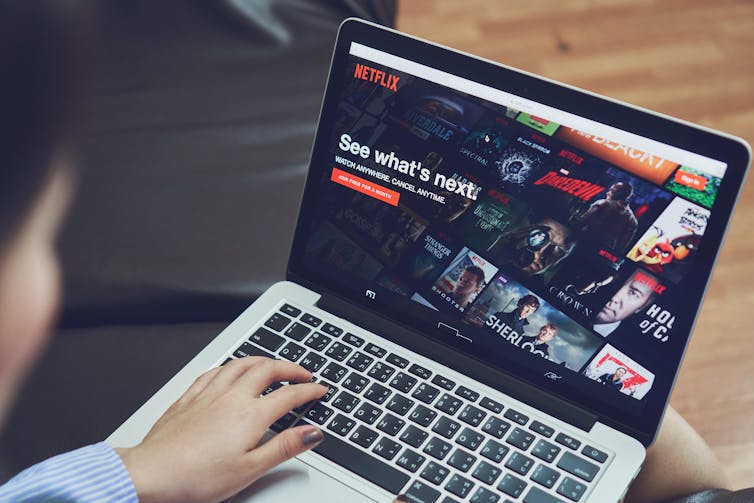The bidding war between Comcast and Disney for European pay-TV giant Sky’s operations is over, after Comcast withdrew from the running. But not before it reached astronomical heights, reflective of the dubious thinking that is driving a lot of mergers and acquisitions at the moment.
Bidding by the two major US entertainment businesses for Sky had reached US$34 billion – with Comcast trumping Disney’s previous bid in the region of US$32 billion. This is around 100% above the undisturbed share price and 15 times earnings before interest, tax, depreciation and amortisation (or EBITDA – a standard measure of a company’s operating performance).
By any standards, these are astronomical figures. And they are difficult to justify without the spectre of new online rivals, Amazon and Netflix.
It is generally accepted that the current prices needed to acquire businesses are at a high thanks to low interest rates making cheap cash readily available, together with reduced US corporate taxes and a strong US dollar. But, even so, bids rarely exceed 50% more than the share price value. In the case of Sky, the price has reached almost 100% and may have some way to go still.
Share prices reflect information in the public domain and provide a guide to what a business is worth. In this case, Comcast and Disney board determination to acquire is driving prices way above a level which can be justified by any conventional means. The recent AT&T-Time Warner deal at US$80 billion was 13 times earnings and it could be argued that Time Warner should be on a higher multiple than Sky as it is primarily a content producer, while Sky is more focused on distribution.
And the competition between Comcast and Disney was almost a side show compared to Disney’s US$52 billion deal to buy 21st Century Fox in December 2017. Again this enormous price was justified by the threat of Netflix and Amazon.
Power play
Major merger and acquisition deals, for the most part, destroy value. Not just for shareholders but often customers, suppliers and other stakeholders. Some would argue that the only real beneficiaries are the shareholders of the business being acquired who get a high price often due to overpaying, and the boards of the acquirer.
The boards of the firm doing the acquiring usually end up with more power, status and pay. Research supports the notion that around 60% of acquisitions destroy shareholder value for the buyers’ shareholders. We also know that increased industry concentration reduces consumer choice and creates greater pressure on suppliers. It now seems that to justify these deals there has to be the threat that not doing them will somehow be worse.

Shutterstock
The same thing happened recently when Amazon ventured into the world of online medicines by acquiring the embryonic online pharmacy PillPack for US$1 billion. Immediately, pharmacy chain stores saw their share prices tumble and it spawned a whole series of deals which are spun as being a response to the online threat. Among other mergers, the drug store chain CVS Health bought Aetna Healthcare, a health insurer, in a US$69 billion deal, which is difficult to see the logic of – other than as a way to diffuse the threat of Amazon.
But probably the most audacious merger of recent months is the £14 billion merger of grocers Asda and Sainsbury’s in the UK. Between them they will have almost 31% of the UK grocery market, while Tesco will also have 28%. It is difficult to see a possible rationale for the competition authorities to allow such a reduction in the competitive offerings to the consumer.
Sainsbury’s has vowed to cut prices following its merger with Asda, but higher prices in the long run, along with less choice, is to be expected when just two players will have almost two thirds of the market. The justification can scarcely be the competitive threat posed by Aldi and Lidl who between them hold just 13% of the UK grocery market after scrapping for almost 30 years to build this position.
The rationale for persuading the Competition and Markets Authority (CMA) regulator to agree to the deal is the likely emergence of Amazon, which is already offering online deliveries of groceries in the London area. In effect, the CMA is being asked to agree to a deal due to the threat from an online market, which looms large but has scarcely materialised yet. Five years ago, it’s hard to see that it would even consider allowing this deal.
It is clear that the threat of Amazon, Netflix and co. is being used by boards to justify strategies which would have raised very serious questions a few years ago and may well have failed to receive support without the threat of Silicon Valley. The concept of value creation is being lost as boards pursue their own objectives at the expense of their shareholders.
![]() Meanwhile, consumers, who expect the various competition authorities to look after their interests, are being short changed. In the cold light of day, at some time in the future, there will be a moment of reckoning for boards when they have to justify their actions, which may by then have proven disastrous for shareholders, suppliers and customers.
Meanwhile, consumers, who expect the various competition authorities to look after their interests, are being short changed. In the cold light of day, at some time in the future, there will be a moment of reckoning for boards when they have to justify their actions, which may by then have proven disastrous for shareholders, suppliers and customers.
John Colley, Professor of Practice, Pro Dean, Warwick Business School, University of Warwick
This article was originally published on The Conversation. Read the original article.














